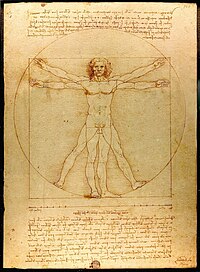 Humanists UK logo | |
| Formation | 1896 |
|---|---|
| Location | |
Members (2021) | 100,000 members and supporters[1] |
President | Adam Rutherford |
Chief Executive | Andrew Copson |
| Affiliations | Humanists International |
| Website | humanists |
Formerly called |
|
| Part of a series on |
| Humanism |
|---|
 |
| Philosophy portal |
Humanists UK,[2] known from 1967 until May 2017 as the British Humanist Association (BHA), is a charitable organisation which promotes secular humanism and aims to represent "people who seek to live good lives without religious or superstitious beliefs" in the United Kingdom[3] by campaigning on issues relating to humanism, secularism, and human rights. It seeks to act as a representative body for non-religious people in the UK.
The charity also supports humanist and non-religious ceremonies in England and Wales, Northern Ireland, and the Crown dependencies and maintains a national network of accredited celebrants for humanist funeral ceremonies, weddings, and baby namings, in addition to a network of volunteers who provide like-minded support and comfort to non-religious people in hospitals and prisons. Its other charitable activities include providing free educational resources to teachers, parents, and institutions; a peer-to-peer support service for people who face difficulties leaving coercive religions and cults; work to promote tolerance and understanding between religious communities and the non-religious; and work to promote understanding of humanism. The current president of Humanists UK is Adam Rutherford and the chief executive is Andrew Copson. The association currently has 70 affiliated regional and special interest groups and claims a total of approximately 100,000 members and supporters.[1]
Humanists UK also has sections which run as staffed national humanist organisations in both Wales and Northern Ireland. Wales Humanists and Northern Ireland Humanists each have an advisory committee drawn from the membership and a development officer. Wales Humanists and Northern Ireland Humanists campaign on devolved issues in Cardiff and Belfast and work to expand the provision of humanist ceremonies, pastoral care, and support for teachers in those countries.[4][5]
- ^ a b "About Us". Humanists UK. Retrieved 9 February 2021.
- ^ "British Humanist Association becomes Humanists UK", Politics.co.uk, 22 May 2017. Archived 23 May 2017 at the Wayback Machine. Retrieved 23 May 2017.
- ^ "About Us: The British Humanist Association". Retrieved 13 May 2011.
- ^ Cite error: The named reference
NIwas invoked but never defined (see the help page). - ^ Cite error: The named reference
Waleswas invoked but never defined (see the help page).